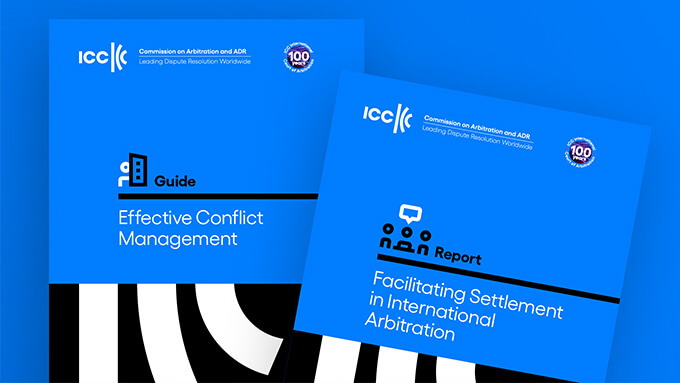A Shift from Arbitration to Multilateral Investment Court System at EU
Introduction
The establishment of an international investment court system has been one of the major objectives of the European Commission since 2015[1], as the investor-to-state dispute settlement via arbitration is argued to become obsolete.
In this article, the shift from arbitration into a permanent court system will be covered.
The Reasons Behind an Investment Court System
As per the Fact Sheet[2] of the Commission of 2017:
- Case-by-case establishment of ad hoc tribunals with diverging approaches on investment rules avoid predictability in investment disputes;
- The current system is not transparent enough, since it lacks systematic publication of arbitral awards or decisions;
- Due to the party appointed nature of the arbitrators, partiality concerns are on the rise; and
- The limitations on grounds for rights of appeal in the current ad-hoc mechanism reduce comprehensiveness.
According to these grounds, termination of intra-EU bilateral investment treaties (“BITs”) and the establishment of a multilateral investment court has been promoted. This system is claimed to avoid the above-stated shortcomings through its permanency, transparency and cost-efficiency by avoiding duplicate work for each BIT[3].
Achmea Judgment
In line with this notion, the Court of Justice of the European Union (“CJEU”) rendered its Achmea judgment on 6 March 2018[4], by concluding on the incompatibility of the arbitration clause in the Netherlands-Slovakia BIT[5] with the primacy of the EU law, which was analysed in our previous article[6].
This judgment has been widely criticized within the arbitration community and has become major support for the Commission in its intensified invitation to the MSs on the termination of the intra-EU BITs[7].
Termination of intra-EU BITs
In its Communication[8] dated 19 July 2018, the Commission qualified the intra-EU BITs as “a parallel treaty system overlapping with single market rules, preventing the full application of EU law”[9]and even added that it may activate infringement procedures against the MSs during its monitor on the termination phase of the BITs[10].
As a complement to this statement, the MSs committed to terminate all intra-EU BITs no later than 6 December 2019 in a declaration published on 17 January 2019[11] and acknowledged that:
- The EU law takes precedence over intra-EU BITs;
- The arbitration clauses contained in these BITs are contrary to EU law and are, hence, inapplicable;
- The arbitral tribunals established as per these arbitration clauses lack jurisdiction;
- No new intra-EU investment arbitration proceeding may be initiated; and
- The MS courts shall either set aside, or not enforce, the intra-EU investment arbitration awards.
It should be noted that the MSs did not provide a common position on the effect of the Achmea judgment on the investor-state arbitration clause of the Energy Charter Treaty and adopted separate versions of the declaration[12].
A Hybrid Investment Court System
In line with the above-stated developments, the EU has been establishing a hybrid system to hear the investor-state disputes during the transition process from BIT mechanisms to a multilateral investment court. This system will be governed by investment courts to be established according to the terms agreed to under free trade agreements.
As per the Investment Protection Agreement concluded between the EU and Singapore[13], investor-state disputes will be heard before a Tribunal of First Instance[14]. The decisions of this tribunal will be appealed before the Appeal Tribunal[15]. The Secretariat of the ICSID will provide administrative service, and act as the secretariat of both tribunals[16].
Likewise, according to the EU-Canada Comprehensive Economic and Trade Agreement[17] (“CETA”) and EU-Vietnam trade and investment agreements[18], permanent courts will deal with investment disputes brought against the states[19]. These agreements, as well, regulate the appeal procedure against the decisions of the Tribunals[20].
The cases will be heard by three-member divisions of the Tribunal in each of these permanent courts, which have diverging numbers of Tribunal members from 6 to 15[21].
Opinion of an Advocate General of the CJEU
Throughout this period of transformation, the compliance of the tribunals to be established as per the free trade agreements with the EU law and the exclusive jurisdiction of the CJEU has been debated among the MSs. Following the notable effect of the Achmea judgment, these matters were brought before the Advocate General of the CJEU by the Kingdom of Belgium.
Accordingly, in a recent opinion issued by Advocate General Bot of the CJEU dated 29 January 2019[22], the investment dispute resolution mechanism created under the CETA was assessed. According to the Advocate General;
- The dispute settlement mechanism established by the CETA does not adversely affect the judicial system of the EU[23], as it is not intended to review the legality of the acts of the EU[24];
- It is bound by the exclusive jurisdiction of the CJEU over the interpretation of EU law,
- The Achmea reasons cannot be transposed to this examination, since the CETA cannot adversely affect the principle of mutual trust or sincere cooperation[25].
Therefore, the investment dispute resolution mechanism created under the CETA was found to be compatible with EU law[26].
Conclusion
The Commission has accelerated its work towards the establishment of a permanent court system, while the MSs has committed to terminate intra-EU BITs before the end of 2019.
In line with the MSs’ declaration to either set aside or not enforce the intra-EU investment arbitration awards, settlement of intra-EU investment disputes by arbitration is likely to be prevented.
Within the period of transformation into multilateral court system, some disputes are to be resolved before hybrid-permanent courts, which will function as per the free trade agreements that the EU has concluded.
[1] “Trade for All - New EU Trade and Investment Strategy”, 14.10.2015, http://trade.ec.europa.eu/doclib/docs/2015/october/tradoc_153846.pdf (Access date: February 2019).
[2] The Fact Sheet on the European Commission Proposal for a Multilateral Investment Court, http://trade.ec.europa.eu/doclib/docs/2017/september/tradoc_156042.pdf (Access date: February 2019).
[3] Shilpa, Singh J., “A New and Improved Investment Protection Regime: Truth Or Myth!” http://arbitrationblog.kluwerarbitration.com/2019/02/03/new-and-improved-investment-protection-regime-truth-or-myth/(Access date: February 2019).
[4] The Judgment of the Grand Chamber of the CJEU: Slovak Republic v. Achmea B.V., Case C-284/16, https://www.italaw.com/sites/default/files/case-documents/italaw9548_0.pdf (Access date: February 2019).
[5] The Agreement on Encouragement and Reciprocal Protection of Investments between the Kingdom of the Netherlands and the Czech and Slovak Federal Republics, signed on 29 April 1991, entered into force on 1 October 1992, https://www.italaw.com/browse/international-investment-agreement-name?field_case_treaties_tid=383 (Access date: February 2019).
[6] Birengel, Tilbe: “Impact of the Achmea Judgement on Investment Arbitration,” Erdem&Erdem Newsletter, October 2018, http://www.erdem-erdem.av.tr/publications/newsletter/impact-of-the-achmea-judgment-on-investment-arbitration/ (Access date: February 2019).
[7] Fouchard, Clément; Krestin, Marc: “The Judgment of the CJEU in Slovak Republic v. Achmea – A Loud Clap of Thunder on the Intra-EU BIT Sky!” http://arbitrationblog.kluwerarbitration.com/2018/03/07/the-judgment-of-the-cjeu-in-slovak-republic-v-achmea/; Risse, Joerg; Oehm, Max: “European Court of Justice Stops Investment Arbitration in Intra-EU Disputes,” https://www.lexology.com/library/detail.aspx?g=4b933d32-d9ee-43c8-bff4-7aa39a2faa88; Pinsolle, Philippe; Michou, Isabelle: “Arbitration: The Achmea v Slovakia Judgment of the CJEU, is it really the end of Intra-EU Investment Treaties?” https://www.quinnemanuel.com/media/1418711/the-achmea-judgement-ending-intra-eu-investment-treaties.pdf (Access date: February 2019).
[8] Communication from the Commission to the European Parliament and the Council: “Protection of Intra-EU Investment”, 19.07.2018, https://eur-lex.europa.eu/legal-content/EN/TXT/PDF/?uri=CELEX:52018DC0547&rid=8 (Access date: February 2019).
[9] Communication from the Commission to the European Parliament and the Council: “Protection of Intra-EU Investment”, 19.07.2018, p. 2, https://eur-lex.europa.eu/legal-content/EN/TXT/PDF/?uri=CELEX:52018DC0547&rid=8 (Access date: February 2019).
[10] Global Arbitration Review, “Brussels Pours Cold Water on Intra-EU Treaty Arbitration”, https://globalarbitrationreview.com/article/1172132/brussels-pours-cold-water-on-intra-eu-treaty-arbitration (Access date: February 2019).
[11] European Commission announcement on “Declaration of the Member States of 15 January 2019 on the Legal Consequences of the Achmea Judgment and on Investment Protection”, 17 January 2019, https://ec.europa.eu/info/sites/info/files/business_economy_euro/banking_and_finance/documents/190117-bilateral-investment-treaties_en.pdf (Access date: February 2019).
[12] Tomáš Matejovsky, Monika Mareková, Malgorzata Surdek, Sarah Grenfell, “EU Member States Adopt Declaration on the Termination of All Bilateral Investment Treaties,” https://www.lexology.com/library/detail.aspx?g=86da4efa-6174-4141-9a27-18e3635b99f4&l=8A0LFBP (Access date: February 2019).
[13] The EU-Singapore Investment Protection Agreement, http://trade.ec.europa.eu/doclib/press/index.cfm?id=961 (Access date: February 2019).
[14] Jack Ballantyne, “European Parliament Approves EU-Singapore Trade Deal”, (Access date: February 2019).
[15] Article 3.9 and 3.19 of the EU-Singapore Investment Protection Agreement, http://trade.ec.europa.eu/doclib/docs/2018/april/tradoc_156731.pdf (Access date: February 2019).
[16] §16 of Article 3.9 and §14 of Article 3.10 of the EU-Singapore Investment Protection Agreement, http://trade.ec.europa.eu/doclib/docs/2018/april/tradoc_156731.pdf.
[17] Comprehensive Economic and Trade Agreement entered into force provisionally on 21 September 2017, http://ec.europa.eu/trade/policy/in-focus/ceta/ceta-chapter-by-chapter/ (Access date: February 2019) (Access date: February 2019).
[18] EU-Vietnam trade and investment agreements, http://trade.ec.europa.eu/doclib/press/index.cfm?id=1437 (Access date: February 2019).
[19] Erica Stein, Dániel Dózsa, “Advocate General of EU’s Highest Court Weighs in Favor of an Investment Court System,” for access: https://www.lexology.com/library/detail.aspx?g=4743a739-7838-411f-b069-c989e519abb1&l=89HSZM6 (Access date: February 2019).
[20] Mark Mangan, “The EU succeeds in Establishing a Permanent Investment Court in Its Trade Treaties with Canada and Vietnam,” https://www.dechert.com/knowledge/onpoint/2016/3/the-eu-succeeds-in-establishing-a-permanent-investment-court-in.html?utm_source=vuture&utm_medium=email&utm_campaign=onpoint (Access date: February 2019).
[21] Shilpa Singh J., “A New and Improved Investment Protection Regime: Truth Or Myth!”, http://arbitrationblog.kluwerarbitration.com/2019/02/03/new-and-improved-investment-protection-regime-truth-or-myth/ (Access date: February 2019).
[22] Opinion of Advocate General Bot, Opinion 1/17 upon the request for an opinion by the Kingdom of Belgium, http://curia.europa.eu/juris/document/document.jsf?docid=210244&mode=req&pageIndex=1&dir=&occ=first&part=1&text=&doclang=EN&cid=9289968 (Access date: February 2019).
[23] Erica Stein, Dániel Dózsa, “Advocate General of EU’s Highest Court Weighs in Favor of an Investment Court System”, https://www.lexology.com/library/detail.aspx?g=4743a739-7838-411f-b069-c989e519abb1&l=89HSZM6 (Access date: February 2019).
[24] §124 of the Opinion of Advocate General Bot, Opinion 1/17, upon the request for an opinion by the Kingdom of Belgium, http://curia.europa.eu/juris/document/document.jsf?docid=210244&mode=req&pageIndex=1&dir=&occ=first&part=1&text=&doclang=EN&cid=9289968 (Access date: February 2019).
[25] §106-108 of the Opinion of Advocate General Bot, Opinion 1/17, upon the request for an opinion by the Kingdom of Belgium, http://curia.europa.eu/juris/document/document.jsf?docid=210244&mode=req&pageIndex=1&dir=&occ=first&part=1&text=&doclang=EN&cid=9289968 (Access date: February 2019).
[26] Sebastian Perry, “EU Court Adviser Endorses ISDS in CETA”, https://globalarbitrationreview.com/article/1179785/eu-court-adviser-endorses-isds-in-ceta (Access date: February 2019).
All rights of this article are reserved. This article may not be used, reproduced, copied, published, distributed, or otherwise disseminated without quotation or Erdem & Erdem Law Firm's written consent. Any content created without citing the resource or Erdem & Erdem Law Firm’s written consent is regularly tracked, and legal action will be taken in case of violation.
Other Contents

Emergency arbitration addresses the need for interim protection before the arbitral tribunal is constituted in institutional arbitrations. Arbitral institutions establish short timeframes to ensure parties can obtain interim relief quickly. For example, the International Chamber of Commerce (“ICC”) requires that the emergency...

International arbitration remains the preferred mechanism for resolving complex cross-border disputes. Yet despite its advantages—neutrality, enforceability, flexibility—arbitration is frequently criticized for being too slow, too expensive, and too procedurally heavy. Often, parties proceed through hearings and...

For arbitral awards rendered in international commercial arbitration to produce legal effects in foreign jurisdictions, they must be subjected to proceedings for “recognition” and “enforcement.” This process is governed by the New York Convention as well as by the provisions of the Law on Private International Law...

Arbitrability, the determination of whether a specific subject matter can be resolved through arbitration, constitutes a fundamental aspect of arbitration within the scope of international commercial dispute resolution. This concept draws a delicate balance between party autonomy—a fundamental principle of arbitration...

The recognition, enforcement, and annulment of foreign court and arbitral awards in Türkiye are processes in which public policy emerges as one of the most critical criteria for review, both in theory and in practice. The Court of Cassation decisions determine the direction of case law regarding the scope and...

As is well known, the action for annulment of objection is a special type of lawsuit regulated under Article 67 of the Turkish Execution and Bankruptcy Law No. 2004 (“EBL”). The primary objective of this action is to nullify a debtor’s objection to execution proceedings. Despite its procedural function of facilitating...

On 16 December 2024, the London Court of International Arbitration (“LCIA”) released its third batch of challenge decisions covering the period from 22 July 2017 to 31 December 2022. The LCIA has also issued a detailed commentary that identifies key legal themes and analytical trends, offering practitioners...

The International Chamber of Commerce (“ICC”) has published its report on the dispute resolution statistics for 2023 (“Report”) , shedding light on the evolving landscape of international arbitration...

Syndicated loans undoubtedly hold a significant position among global financing models. In 2023 alone, 3,655 syndicated loans were provided to companies in the US, with their total value reaching USD 2.4 trillion...

Preliminary attachment refers to the temporary seizure of a debtor's assets to secure a creditor's claim. While it serves as a vital instrument for safeguarding the rights of creditors, it is subject to specific and stringent conditions under Turkish law to prevent any potential misuse...

One of the most important reasons for parties to choose arbitration is the opportunity to freely choose their arbitrators. This freedom granted to the parties also distinguishes arbitration from proceedings before state courts, where the parties are deprived of the power to determine the judges who will conduct the...

The 6th Civil Chamber of the Court of Cassation ruled on October 12, 2022, that national courts have jurisdiction over objections to provisional measures in international arbitration disputes...

The declaration of intent to resolve disputes through arbitration is the fundamental constituent element of an arbitration agreement. To speak of a valid arbitration agreement, the parties' intention to arbitrate must emerge in a way that leaves no room for dispute...

In the wake of the evolving dynamics of commercial transactions, the Netherlands Arbitration Institute Foundation (NAI) announced new arbitration rules . 2024 NAI Arbitration Rules are in force as of 1 March 2024 and will be applicable on proceedings filed on or after this date...

With the global shift to online activities, domain names play a crucial role in identifying businesses. It is more common than ever for a domain name to be registered that is confusingly similar to a trademark or service mark...

The ICC Commission on Arbitration and ADR (“Commission”) published a new guide and report with the aim to increase awareness on alternative dispute resolution (“ADR”) mechanisms to prevent disputes and strengthen the relationship between all stakeholders.The Guide on Effective Conflict Management...

Mergers and Acquisitions (“M&A”) are restructuring of companies or assets through various types of financial transactions, such as mergers, acquisitions, purchase of assets, or management acquisitions. This Newsletter article covers M&A disputes being solved before arbitral tribunals.

In the context of arbitration practice, the principle of revision au fond means that the courts can not examine the merits of a dispute when reviewing an arbitral award. This principle is most commonly encountered in set aside and enforcement proceedings. An arbitral award is evidence of the parties’ willingness...

Under Turkish law, parties may agree on the settlement of disputes that have arisen or may arise, regarding the rights that they can freely dispose of, by arbitration. However, disputes which are not subject to the will of parties, such as the disputes relating to in rem rights of immovables, bankruptcy law...

On 4 September 2020, a research project “Does a Right to a Physical Hearing Exist in International Arbitration?” was launched by an International Council for Commercial Arbitration (“ICCA”) taskforce. Due to the Covid-19 pandemic, many arbitration hearings were held online. Many institutional rules...

Dubai International Arbitration Center amended its Arbitration Rules on 25 February 2022. The 2022 Arbitration Rules were published on 2 March 2022 and came into effect on 21 March 2022. The Rules will be applied to arbitrations that are filed after 21 March 2022; unless parties agree otherwise...

In the aftermath of the Achmea decision, controversies on intra-EU arbitrations continue. Most recently, the Paris Court of Appeal has annulled two arbitral awards rendered against Poland. Meanwhile, the Higher Regional Court of Berlin has refused to declare that an Irish investor’s ICSID claim...


Under Turkish law, the legal remedy that can be applied against arbitral awards is an annulment action. Law on International Arbitration No. 4686 (“IAL”) finds its application area in arbitration proceedings where Turkey is the place of arbitration...

It is well known that following a decision of the Court of Justice of the European Union, problems arose related to arbitration of intra-EU disputes, and particularly arbitration under the Energy Charter Treaty...

Arbitration in corporate law contains controversial elements in many respects, especially the issue of arbitrability. Even in legal systems where these disputes are considered to be arbitrable, uncertainties remain on whether an arbitration clause can be included in the articles of...





Arbitration has benifited from a great increase in the use of technology which has directly effected the conduct of proceedings. More particularly, with digitalization, the way that we conduct arbitration proceedings has been changed to reflect the current needs of parties, with an aim of increasing time...
































































